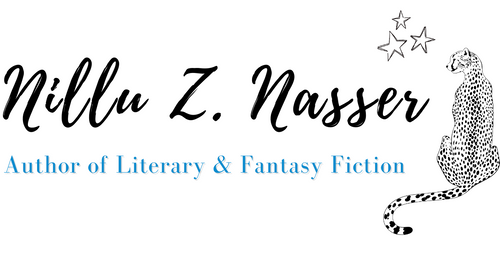
I’ve spent the past month yearning for time to write, to dive feet first into a pool of creativity and find truths in made up worlds. Today, with the kids back at school, London visits behind me and chores done, I climbed the stairs tentatively to the attic we have set up as my writer’s studio. It’s a calm, beautiful space, away from the hustle and bustle of the rest of the house. I sat at the great expanse of my dad’s old mahogany desk and realised that the urgency I had felt to write had disappeared, only to be replaced by fear.
This cycle is so familiar it’s painful. Do you find that falling out of a writing routine is destructive for you? For me, it causes a disconnect from the psyche of my characters. The breath of reality can fill up our creative wells, but it can also interrupt our focus. It can be the prelude to a slow creep of crushing self-doubt. Writing is an introspective process; no amount of external validation can replace the need for self-belief. We are reliant on ourselves to find our rhythm again. I’m starting to realise that it pays not to interrupt that beat.
Perhaps that’s why Stephen King writes every day including his birthday. Or why Haruki Murakami mesmerises himself with a strict routine of early rising, writing and physical exercise when he is working on a novel. Or why Maya Angelou wrote daily in the writing hideaway she created for herself in a hotel room. Masters of the written word find the routine that works for them and deviate from it with great reluctance. They know the value of the dream-like, meditative state which aids creativity.

Photo by Nebojsa Mladjenovic
You may hear the word ‘routine’ and think of chores, repetition and drudgery. Creativity shouldn’t be a straitjacket. It’s freedom, a rush of pure oxygen, a fleeting bubble of awareness. Routines bypass fear, doubt and indecision. They put you on automatic pilot. A routine makes creativity part of your lifestyle, not just a hobby to tinker with. A creative routine is an affirmation that you are more than just a consumer. It makes it more likely that you will act on your creative impulses, rather than let them pass you by.
I choose to make writing a part of my routine because I don’t feel grounded without it. Words anchor me to thoughts which would otherwise pass through me unheeded. Words are a weapon against a disposable society. They allow us to examine our choices and make sense of the unfathomable. Words on paper are unhurried. They are both a luxury and a necessity. They connect even the loneliest people to each other. They build understanding. Without expression, we are merely empty vessels.
Writing is not a business of overnight successes. Whatever success means to you – finishing your writing project, a loyal readership, critical acclaim, financial independence, awards, fame, your name on book sleeves – to get there you’ll need to put in the work. Whether you’re at your desk, on a park bench or sprawling on your bed, writers write. I used to think talent was the key to success, but without perseverance we fail without even having started.
I’m still sitting at dad’s old desk. Its surface is marred by peeling paintwork. I find comfort in running my hands over the roughened wood. Autumn is on her way. A biting breeze has slipped through the balcony doors and has carried in a hum of cars from the road. The mountains are shrouded in cloud. It suits my mood. I’m going to delve into the stillness in me and work on a short story. When autumn comes, she’ll bring relief from the mosquitos, and fiery hues of burnt orange and mustard yellows. By then, I’ll be back in my writing routine, and this time I won’t be letting it slip.
‘Inside you there’s an artist you don’t know about…say yes quickly, if you know, if you’ve known about it since the beginning of the universe.’ – Rumi
‘It is not because things are difficult that we do not dare; it is because we do not dare that they are difficult.’ – Seneca
‘I merely took the energy it takes to pout and wrote some blues.’ – Duke Ellington
